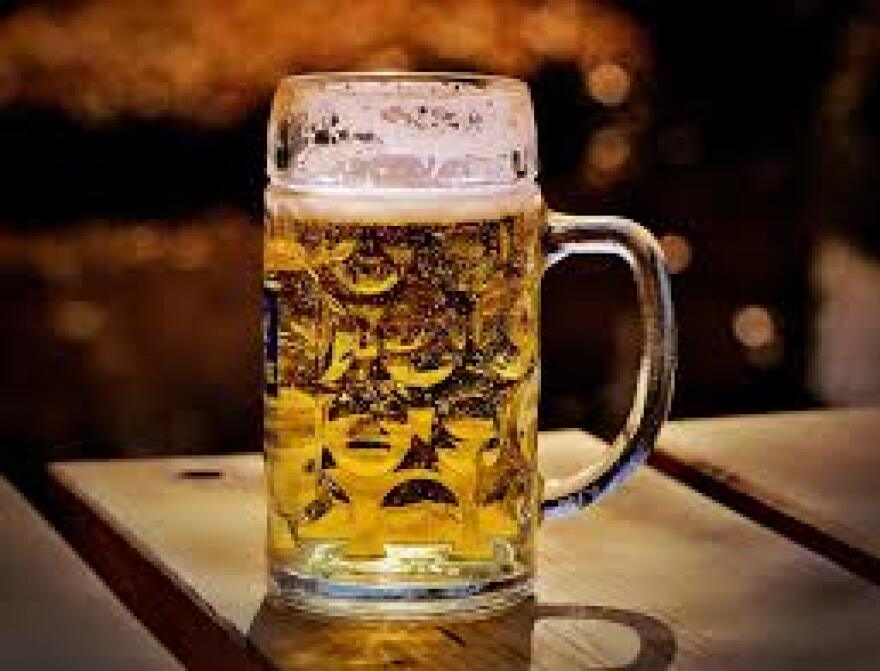Wisconsin's craft brewers, including the maker of the popular Spotted Cow beer, large retailers like the Kwik Trip convenience store franchise and other producers, wholesalers and retailers are getting behind a rapidly moving proposal that would overhaul the state's alcohol laws and lead to stricter enforcement efforts.
The measure, hammered out in secret the past five years largely between Republican lawmakers and the multi-billion dollar alcohol industry, is moving quickly through the GOP-controlled Legislature. It was introduced on Friday and was scheduled for a public hearing on Tuesday. The Legislature is expected to pass it in two weeks.
Democratic Gov. Tony Evers' administration has also been involved with negotiations.
Most of the changes would not be noticeable to average alcohol consumers in the state, those who worked closely on the bill said.
But the creation of a new division to oversee liquor laws could lead to the enforcement of largely ignored current laws, like a ban on the shipping of liquor or beer directly to a customer made popular through “beer of the month” clubs and nationwide mail-order catalogs that feature hard-to-get bourbon or other spirits.
“The public will have a better sense that the laws governing alcohol will be enforced uniformly and fairly,” said Scott Stenger, a lobbyist for the Tavern League of Wisconsin.
The fact that all tiers of the industry are welcoming greater enforcement “sends a very powerful message” about the need for more clarity, Stenger said.
Those who worked on the measure with Republican legislative leaders say now is the time to update laws in a state that saw the birth of beer-giant Miller in Milwaukee and in recent years has seen an explosion of smaller craft brewers, like New Glarus Brewing Co. which makes Spotted Cow and other beers available for sale only in Wisconsin.
The bill affects every level of the state’s alcohol industry governing the licensing, producing, selling and distribution of beer, wine and liquor. The so-called three-tier system, created in the 1930s, has been eyed for changes for years, but policy makers and the alcohol industry have been unable to reach agreement.
The three-tiered system was designed to prevent monopolies so the same entity could not produce and sell alcohol at the wholesale and retail levels. But the system has been criticized for years for not keeping up with changes in the industry, including the explosion of smaller craft breweries, the popularity of wedding barns and other innovations.
The bill would require venues that sell or allow alcohol at special events, known generally as wedding barns, to either get a permit or alcohol license to operate legally. The measure would also allow for craft breweries to sell products from other out-of-state breweries. Wineries could open earlier in the morning, at the same time as bars, to sell their products. The bill would also create new guidance for contract brewing, winemaking and distilling, a growing segment of the industry.
The proposal addresses issues that have become a “daily pain in the butt for retailers," said Brandon Scholz, president and CEO of the Wisconsin Grocers Association.
“It’s a long time coming,” Scholz said.
Perhaps the biggest change is creating a new division within the state Department of Revenue to regulate and oversee regulating the alcohol industry and enforcing the law. One of the loudest targets of criticism under the current system was the lack of a dedicated state office to interpret and enforce regulations.
Enforcement “went to hell” in recent years, as key personnel overseeing alcohol laws retired, said Stenger, with the Tavern League. Wisconsin is one of only a handful of states that doesn't have a dedicated office charged with enforcement of alcohol laws, he said.
Republican Assembly Speaker Robin Vos, who fought attempts to make piecemeal changes over the years and instead encouraged those involved to take a wider view, said he hoped to pass the measure on June 21. Vos said he was optimistic that the governor would sign it into law.
A wide array of those in the alcohol industry are registered in support, including Kwik Trip, Molson Coors Brewing Co., New Glarus Brewing Company, the Wisconsin Craft Beverage Coalition, the Wisconsin Grocers Association and the Wisconsin Wine and Spirit Institute.
Vos said it has wide support because “everybody gets something out of this and it doesn't do harm to anyone else.”





